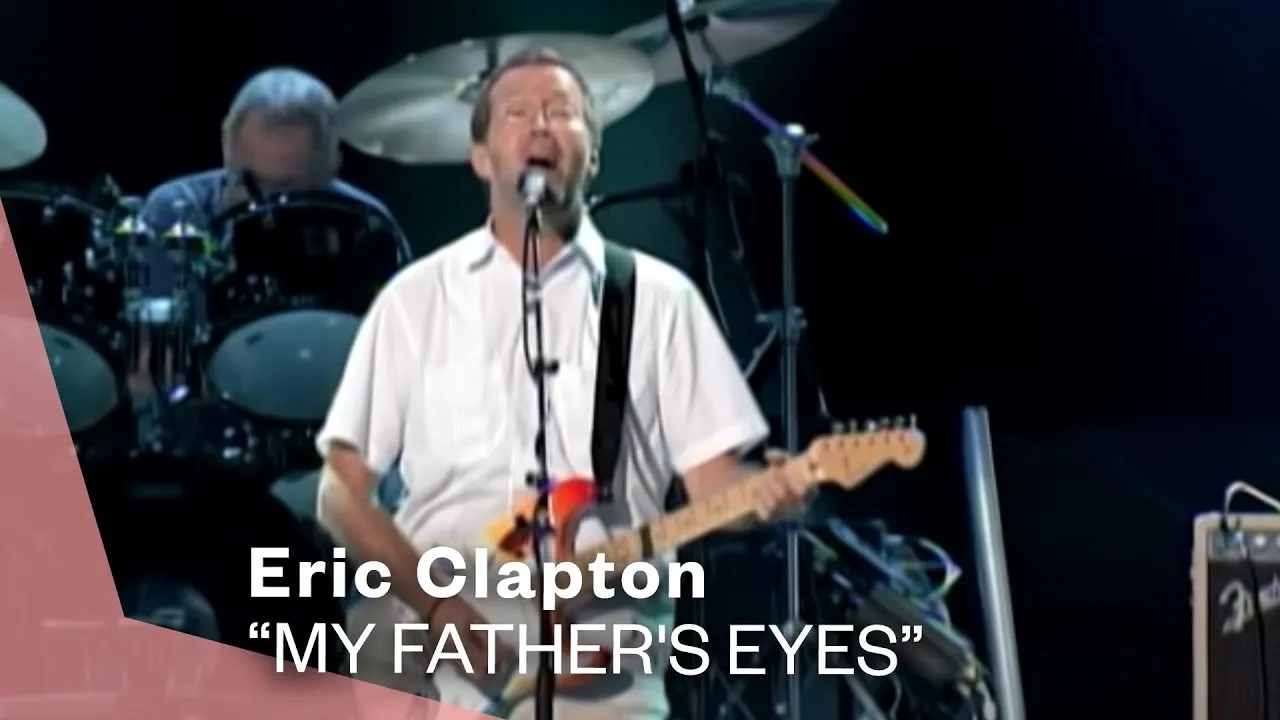About The Song
(Watch the video below)
Eric Clapton's "Cocaine" is a musical paradox. It's a tune that grooves with irresistible energy while delivering lyrics that hint at the destructive power of addiction. Released in 1977 as part of Clapton's album "Slowhand," the song became a standout hit, capturing the essence of rock 'n' roll rebellion and the allure of hedonistic excess. With its infectious rhythm, scorching guitar riffs, and provocative lyrics, "Cocaine" remains a timeless classic, but it's also a subject of controversy and debate.
At its core, "Cocaine" is a rock song infused with blues sensibilities, showcasing Clapton's masterful guitar skills and soulful vocals. From the opening riff, it grabs the listener's attention, drawing them into its world of temptation and desire. The driving rhythm provided by the bass and drums propels the song forward, creating a sense of urgency that mirrors the addictive pull of the substance it depicts.

Lyrically, "Cocaine" is both straightforward and enigmatic. The chorus, with its repeated refrain of "She don't lie, she don't lie, she don't lie, cocaine," is instantly memorable, evoking the seductive allure of the drug. The verses, however, offer a more nuanced portrayal, hinting at the darker consequences of addiction. Lines like "If you wanna hang out, you've got to take her out, cocaine" and "She don't mind, she don't mind, she don't mind, cocaine" suggest a sense of dependency and compulsion, as if the drug itself has taken on a life of its own.
The ambiguity of the lyrics has led to various interpretations of the song's meaning. Some view it as a cautionary tale, warning of the dangers of drug abuse and the toll it can take on one's life. Others see it as a celebration of the rock 'n' roll lifestyle, with cocaine symbolizing rebellion and freedom from societal constraints. Clapton himself has offered conflicting explanations over the years, adding to the mystique surrounding the song.

One interpretation of "Cocaine" is that it serves as a reflection of Clapton's own struggles with addiction. Throughout his career, Clapton has been open about his battles with substance abuse, including his well-documented addiction to cocaine in the 1970s. In this context, the song can be seen as a form of artistic expression, allowing Clapton to confront his demons and communicate his experiences to his audience. By sharing his personal struggles through music, Clapton not only connects with listeners on a deeper level but also offers hope and understanding to those facing similar challenges.
Beyond its lyrical content, "Cocaine" is also notable for its musical craftsmanship. Clapton's guitar playing is nothing short of iconic, with his blistering solos and expressive phrasing elevating the song to legendary status. The interplay between Clapton's guitar and the rhythm section creates a dynamic energy that drives the song forward, making it impossible to resist tapping your foot or nodding your head along with the beat.
Moreover, "Cocaine" showcases Clapton's ability to blend various musical influences into a cohesive whole. The song draws on elements of blues, rock, and funk, resulting in a sound that is both timeless and unmistakably Clapton. The infectious groove and irresistible hooks ensure that "Cocaine" remains a staple of classic rock radio and concert playlists to this day.

Despite its enduring popularity, "Cocaine" has also sparked controversy and criticism. Some have accused the song of glamorizing drug use and promoting a dangerous lifestyle, while others have questioned its suitability for airplay on mainstream radio. In response to these concerns, some radio stations have chosen to censor or ban the song altogether, further fueling the debate surrounding its meaning and impact.
In recent years, "Cocaine" has taken on new significance in the context of the ongoing opioid epidemic and the broader conversation about addiction and mental health. While the song may have been written decades ago, its themes of temptation, dependency, and struggle resonate just as strongly today as they did upon its release. In a world where millions continue to grapple with addiction, "Cocaine" serves as a reminder of the power of music to confront difficult truths and spark meaningful dialogue about the human experience.
In conclusion, "Cocaine" by Eric Clapton is more than just a song; it's a cultural landmark, a musical masterpiece, and a reflection of one man's personal journey through addiction and recovery. With its irresistible groove, incisive lyrics, and timeless appeal, "Cocaine" continues to captivate audiences and provoke thought and discussion to this day. Whether you see it as a cautionary tale or a celebration of rebellion, there's no denying the impact that "Cocaine" has had on music and popular culture, cementing its status as a true classic of the rock 'n' roll canon.



